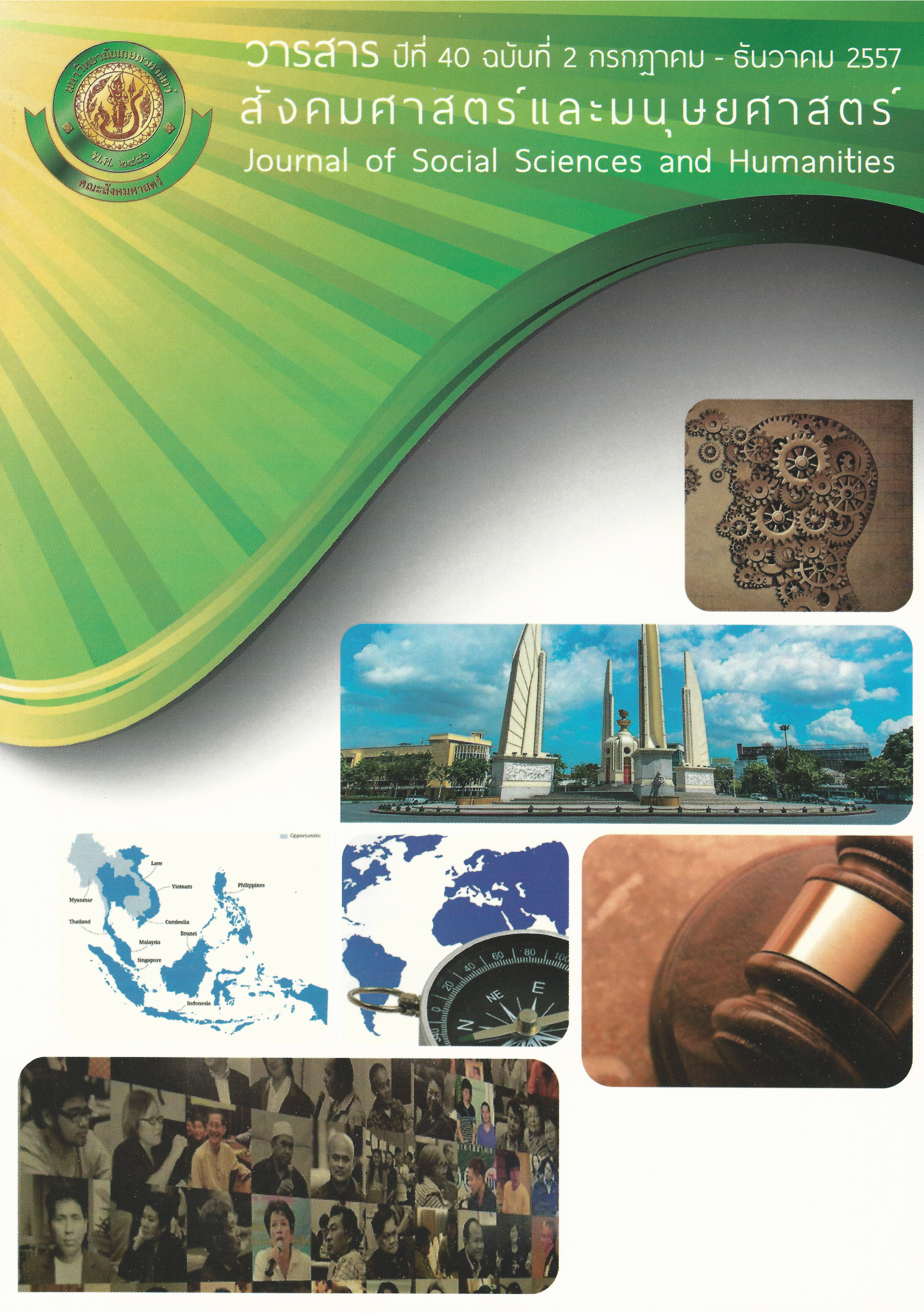เขื่อนไซยะบุรี : ผลของการจัดกรอบการอภิบาลแม่น้ำโขงในรูป 'Soft Law'
Main Article Content
บทคัดย่อ
ประเทศลาวได้ดำเนินโครงการเขื่อนไฟฟ้าพลังน้ำไซยะบุรี แม้ว่ายังคงมีความคลุมเครือเกี่ยวกับพันธะของลาวที่จะต้องปฏิบัติในฐานะผู้เสนอขอใช้ประโยชน์น้ำ และสิทธิของประเทศภาคีที่จะร่วมพิจารณาโครงการในฐานะรัฐริมฝั่งตามความตกลงแม่น้ำโขง ค.ศ. 1995 ลาวได้นำโครงการเข้าสู่กระบวนการปรึกษาหารือล่วงหน้าในคณะกรรมาธิการแม่น้ำโขง และต่อมาได้เริ่มต้นงานก่อสร้าง ทั้งๆ ที่กลไกร่วมของการจัดการแม่น้ำระหว่างประเทศดังกล่าวเรียกร้องให้มีการศึกษาผลกระทบเพิ่มเติม และประเทศสมาชิกไม่ได้แสดงความเห็นพ้องกันโดยแจ้งชัดว่าลาวสามารถเริ่มต้นโครงการได้ นักสิ่งแวดล้อมโจมตีลาวว่า ละเมิดความตกลงแม่น้ำโขง แต่บทความนี้ชี้ว่า พฤติกรรมการใช้น้ำของลาวเป็นผลจากแบบลักษณะของกรอบการอภิบาล ที่ถูกจัดวางให้มีลักษณะเป็น “กฎหมายที่ผ่อนปรน” แทนที่จะเป็น “กฎหมายที่เข้มงวด”
Xayaburi Dam : A Consequence of Designing Mekong Governance as 'Soft Law'
Laos PDR has started building Xayaburi hydropower dam despite some ambiguities about its obligations as a country that proposes to utilize water and about other riparians' rights under 1995 Mekong Agreement. Laos submitted the proposed mainstream dam to the Mekong River Commission (MRC) for joint review under Procedures for Notification, Prior Consultation and Agreement which is a requirement of the 1995 Mekong Agreement and then began construction in spite of MRC's call for additional studies. At the same time, member countries did not reach a consensus explicitly on whether or not it should proceed, and if so, under what conditions. Environmentalists condemned Laos as a violator to the Mekong Agreement. This paper argues that Laos’ behavior was as a consequence of legalization in which rules had been designed as 'soft law' rather than 'hard law'.

